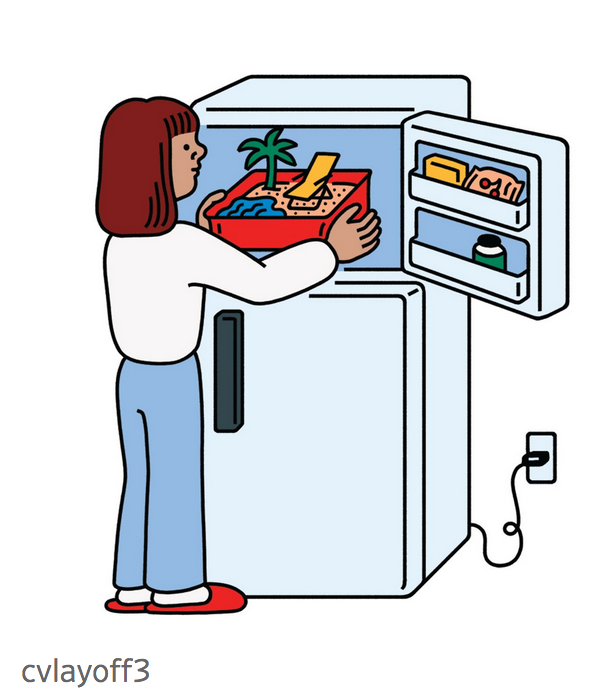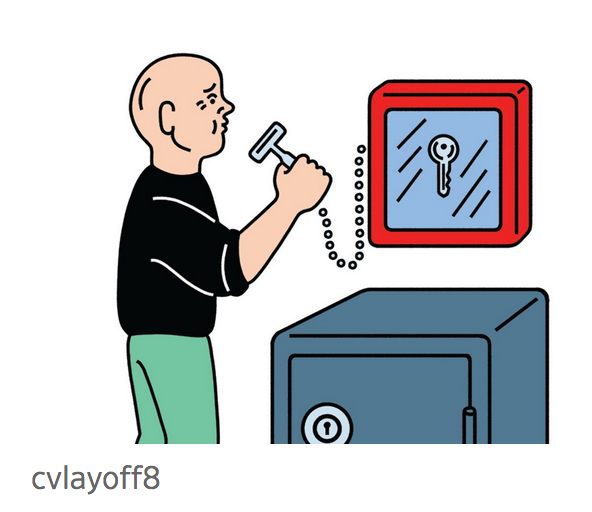10 Financial Moves To Make If You Have Lost Your Job—or Fear You Will (#GotBitcoin?)
The wave of layoffs makes it imperative to have a financial plan in place, even if you’re still working. 10 Financial Moves To Make If You Have Lost Your Job—or Fear You Will (#GotBitcoin?)
With tens of millions of Americans losing their jobs, the U.S. is approaching Depression-era levels of unemployment. Millions of households across the country are staring at their budgets trying to figure out how to save money, lower bills and cut back.
Even if you haven’t lost your job, now can be a good opportunity to start creating a sound financial plan. Most people don’t have a solid grasp of their financial situation, says Stephanie Mackara, president of Charleston Investment Advisors in Mount Pleasant, S.C., and author of “Money Minded Families.” If you are “just putting money away, you don’t have a plan,” she says.
What follows is advice from experts on how people can best prepare financially for the months ahead, whatever their employment status.
1. Survey Your Spending: Anyone who has been laid off, or worries about being laid off, should first analyze all of his or her spending—perhaps using a digital service like Mint.com, which is free. Break your spending into two buckets, Ms. Mackara says: fixed and discretionary. Most important are the fixed expenses, like food, rent and utilities, she says. This is what it costs you each month for the bare necessities. “Most people don’t even know that number,” she says.
Once you’ve determined your rock-bottom cost of living, you can determine where and how much to cut. This doesn’t mean you have to cut all of your discretionary spending. For instance, Ms. Mackara says, any monthly subscription service that you’re not using can easily go.
2. Negotiate With Lenders (and Everyone Else): Try to lower the rates you pay to monthly providers of services such as cable, phone and internet, says Jim Miller, a certified financial planner at Woodward Financial Advisors in Chapel Hill, N.C. Many will work with you, rather than risk losing you as a customer. And if you’re having trouble with big-ticket payments, like your mortgage or car, Mr. Miller says, call your lender, explain your situation and try to negotiate some relief there, too.
“I think most lenders will be willing to put you on some sort of either suspension of payment plan, or renegotiate the terms more favorably,” he says, “especially with the financial circumstances that are going on in the world today.”
3. Pause Retirement Contributions: “When your house is on fire you don’t sit and worry about how much you’re paying for the water that you’re spraying on it,” says Ellen Webber, a certified financial planner in Seattle. “You’ve got to deal with the problem in front of you.”
4. Reconsider Your Tax Withholdings: If your hours have been reduced, but not eliminated, at least think about reducing your withholding, says Jason Speciner, a certified financial planner at Financial Planning Fort Collins in Colorado. Those who usually get a tax refund should consider getting that money sooner, by opting for a bigger check now, he says. And if you’re filing for unemployment, Mr. Speciner says to consider reducing your withholding to zero. Most states, and the Internal Revenue Service, tax unemployment benefits. It might be better to have more money today, and to risk possibly owing a little more when you file your 2020 taxes, he says.
5. Modify Your Insurance: Health insurance is a must, Ms. Webber says, and there can be a number of options available if you have lost your job and aren’t bringing in any income. You may qualify for credits on the health-care exchange to help you purchase insurance through Healthcare.gov or individual state exchanges. Or you might have access to Medicaid options in your state. Ms. Webber says that sometimes children are eligible for Medicaid even when their parents aren’t.
Mr. Speciner says if you’re not driving as much, you might be able to get a reduced rate from your car insurance company. You also often can reduce your monthly premium if you raise your deductible or make other temporary changes, he adds.
6. Pause College Saving: Parents often make their children’s higher education a bigger priority than saving for retirement, says Nathan Kublank, a certified financial planner at Aspiriant in Milwaukee. But if you’ve been laid off, Mr. Kublank says, put the college savings on hold. And even after you are back at work, if you don’t have an adequately funded emergency fund, consider continuing to pause college-savings contributions until you have at least a year’s worth of expenses set aside for the next emergency.
7. Get Your Children On Board: Ms. Mackara suggests having frank conversations with your children about what your family is going through, and explaining why some past expenditures—summer camp and vacations, for example—might not happen this year. She also suggests asking them for ideas on how to cut back on spending.
The main thing parents should communicate, she says: “Listen, this is why it happened to us, why it may happen again, and here’s why it’s important.”
8. Tap Your Emergency Fund: It might seem like the obvious thing to do, but some people have a very difficult time dipping into their emergency savings when an actual emergency does arise.
“They call it a rainy-day fund, right? This is a rainy day,” says Mr. Miller. “This is the time to use those dollars.”
Mr. Speciner says that in cases where people have bought whole-life insurance policies, which are designed to gain cash value over time, such policies can be good assets to tap in an emergency. If you have a healthy amount of cash value built up in such a policy, he says, and if it was your intention for it to be a possible emergency fund, go ahead and “activate the plan,” he says; just make sure you understand the limits and rules of the policy.
9. Consolidate and Negotiate Credit-Card Debt: If you lose your job and you’re saddled with credit-card debt, call your credit-card company, tell them what has happened, and see if you can get a rate adjustment or some other kind of relief, Mr. Kublank says. If you can’t, and you have a large balance and high interest rates, he suggests going to a local credit union to see if they’ll work with you. Sometimes, he says, a credit union will be open to consolidating credit-card debt at a lower interest rate than someone is currently paying.
10. Stop Paying Your Mortgage: If worse comes to worst and you can’t afford to pay for essentials, Ms. Webber advises that stopping your mortgage payment doesn’t mean imminent homelessness. It will likely take many months, or even years, for the eviction process to take place, she says. But it’s also going to “put a big fat black mark” on your credit rating. It could make it difficult, if not impossible, to buy another home for a number of years.
If You Must Go Into Debt, Here’s What To Consider
Look at your options and map out a strategy, planning specialists say.
Americans struggling to make ends meet in the coronavirus crisis may have to do something many would rather avoid—take on more debt.
While often discouraged by financial planners, more debt might be a necessity given the depths of economic hardship wrought by the pandemic. Already some 22 million Americans are seeking unemployment benefits. Others are bracing for layoffs, furloughs and other financial setbacks.
Those forced to take on more debt should consider options, and try to map out a strategy, planning specialists said.
“I never say ‘never’ because all of us are doing the very best we can,” said Megan McCoy, director of the financial planning master’s program at Kansas State University. “There are ways to do this responsibly.”
Step 1: Cut Your Budget To Necessities
Taking on debt or opening a new credit card should never be your first option, said Nick Holeman, senior financial planner at robo-adviser Betterment. Instead, think about the other things you could cut—he calls this creating “an order of operations.”
“We need to create an order of operations, so ask: ‘Can you put food on the table?’ That should be the first and foremost priority,” he said.
Stopping contributions to your retirement and education accounts, such as 401(k)s or 529 accounts, is another option before taking on debt. If the goal is to have more cash on hand temporarily, try to first suspend your mortgage payments as well as your student-loan payments. Keep in mind, though, that student loans and mortgages likely have lower interest rates than credit cards and personal loans.
Think of all measures as short term, not long term, said Mr. Holeman. “We want to make sure they’re viewing this as a short-term gap, something for the next few months only.”
Step 2: Talk To Someone
You may not have a personal financial adviser, but many organizations and resources are offering consultations free of charge, Prof. McCoy said.
She suggested taking advantage of some free guidance before diving into what could potentially be a dangerous debt hole. Groups offering information include the National Association of Personal Financial Advisors and the Association for Financial Counseling and Planning Education.
“Going to talk to a financial counselor or planner could be beneficial because there may be—and I want to emphasize ‘may,’ because there’s still so little clarity as to what money is being made available to people—resources coming through the different relief acts to help them avoid getting into more debt,” Prof. McCoy said. “Not only stimulus checks but also small-business things and rent and student-loan freezes, foreclosure freezes, eviction freezes. Tons of things coming around that a financial planner or counselor could help you find.”
Step 3: Look at Your Loan Options
Another option: Reach out to a family member or friend for a potentially zero- or low-interest loan, said Preston D. Cherry, founder and president of Concurrent Financial Planning. Negotiating those terms with someone trusted could be easier than going to the bank, he said.
Be wary of payday lending and cash-advance loans; many have high interest rates and prey upon those with poor credit. Some can carry interest rates of 300% or higher.
“Getting a loan should not be easy,” Prof. McCoy said. “If it is too easy to get, it’s probably a bad sign.”
She recommends relying on a credit card first, ideally one you already have open. If you have to open a new card, comparison shop. Opening a travel-rewards card with flashy points might not be the best option, she said. Instead, a cash-back card or something with a sensible points program could make more sense.
Above all, pay attention to the annual percentage rate, or APR, and make sure you understand when an introductory offer begins or ends. Some credit-card rates are increasing to provide for points programs, so keep an eye on the average rate and pay attention to how it increases for different cards. For those with good credit, the average APR at the end of 2019 hovered around 20%, according to WalletHub.
“Almost all debt is going to cause compounding interest, which means you end up paying so much more than you need to,” Prof. McCoy said. “But I think that in today’s world, it is relatively hard to live without any forms of debt. In fact, having a credit card and managing it correctly is actually key to have a good credit score.”
If you need a bigger loan for a specific reason, Prof. McCoy recommends exploring personal loan options via your local credit union.
Step 4: Make A Plan—For Repayment And For The Future
Never go into debt without first thinking of how and when you’ll get out of it.
“Credit cards don’t buy things. They buy time,” Prof. Cherry said. “That’s what credit cards and debt centrally do—buy time.”
Prof. Cherry recommends calculating that time in advance of taking on any new debt. Look at the calendar and make a plan for how long you will rely on any debt and how long you will need to pay it off.
When it comes to plotting out a repayment timeline, make sure you plan further ahead than instinct tells you, Prof. McCoy said. “When it comes to money, it’s much better to plan for the worst-case scenario and hope for the best, rather than doing magical thinking that says ‘everything will be fine,’” she added.
10 Financial Moves To,10 Financial Moves To,10 Financial Moves To,10 Financial Moves To,10 Financial Moves To,10 Financial Moves To,10 Financial Moves To,10 Financial Moves To,10 Financial Moves To,10 Financial Moves To,10 Financial Moves To,10 Financial Moves To,10 Financial Moves To,10 Financial Moves To,10 Financial Moves To,10 Financial Moves To,10 Financial Moves To,10 Financial Moves To,10 Financial Moves To,10 Financial Moves To,
Go back




Leave a Reply
You must be logged in to post a comment.